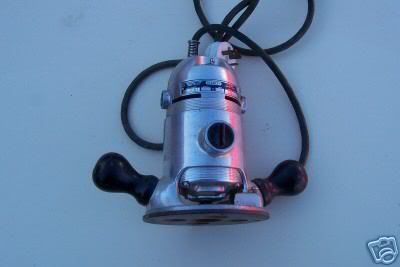LFS19
Established Member
Hi there,
I'm new to the forum and almost equally new to wood working.
Been doing it a few months now, and I've learned quite a bit.
I have a fair few tools that include a circular saw, bandsaw, orbital sander, a reciprocating saw as well as a decent chisle set, but I feel now that I've had some time learning the basics of cutting, I'd like to buy a router.
With everything else I've bought, I haven't really known what sort of power was needing when researching the tools.
I stupidly didn't think to check if there was a woodworking forum where experts could help me to decide, so I just went with whatever seemed powerful in the wats department.
So now that I want to get a router, I had a look online for a forum and found this one.
I was hoping someone could help me find the right router.
There seem to be a fair few on the market, but I don't really know which brands or what sort of power would be the best, or even if that matters a great deal.
I had a look in B&Q, and they have a Mac Alister router for £70 that's 1500W.
It has allot of other information that I presume is important but I don't really know what I'm looking at.
Similarly, there's a Bosch one at £78 on there but that is less powerful.
I've owned both brands, the Mac Alister tools seeming to be good quality, and both the Bosch drill and sander that I have lasting over 20 years.
So both I presume are viable options.
There's also on EBay, a 1200W "Rhyas" one. A brand I've never heard of, but is only £35 reduced from £80.
Any advice would be greatly appreciated.
Thanks allot!
I'm new to the forum and almost equally new to wood working.
Been doing it a few months now, and I've learned quite a bit.
I have a fair few tools that include a circular saw, bandsaw, orbital sander, a reciprocating saw as well as a decent chisle set, but I feel now that I've had some time learning the basics of cutting, I'd like to buy a router.
With everything else I've bought, I haven't really known what sort of power was needing when researching the tools.
I stupidly didn't think to check if there was a woodworking forum where experts could help me to decide, so I just went with whatever seemed powerful in the wats department.
So now that I want to get a router, I had a look online for a forum and found this one.
I was hoping someone could help me find the right router.
There seem to be a fair few on the market, but I don't really know which brands or what sort of power would be the best, or even if that matters a great deal.
I had a look in B&Q, and they have a Mac Alister router for £70 that's 1500W.
It has allot of other information that I presume is important but I don't really know what I'm looking at.
Similarly, there's a Bosch one at £78 on there but that is less powerful.
I've owned both brands, the Mac Alister tools seeming to be good quality, and both the Bosch drill and sander that I have lasting over 20 years.
So both I presume are viable options.
There's also on EBay, a 1200W "Rhyas" one. A brand I've never heard of, but is only £35 reduced from £80.
Any advice would be greatly appreciated.
Thanks allot!


































